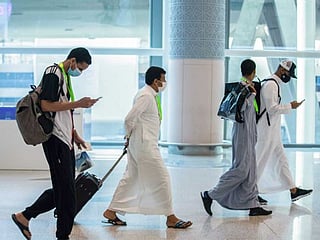Second wave: Coronavirus continues to thrive, all must remain vigilant
The so-called second peak is emerging due to reckless behaviour of some people

While the pandemic continues to accelerate in the big three nations — the United States, Brazil and India — reports warn of a second wave in countries where the virus appeared to have subsided weeks ago.
United Kingdom, Hong Kong and Spain have reported fresh cases, prompting public warning from experts and governments. The big question, however, is what constitutes a second wave?
Broadly speaking, the consensus is that emergence of fresh positives in the regions where virus appeared to have subsided can be described as a second wave of the pandemic.
Some experts dismiss the notion as unscientific and argue that the pattern of the disease caused by Coronavirus is unpredictable.
Since April, a gradual reduction in viral load encouraged parts of the world to open up economy and tourism. Countries in the Arab world do understand the risks involved and they continue to restrict religious gatherings and festive celebrations. Fresh infections in China, Hong Kong, Spain and other parts of the world should be a lesson for all — stay alert and stay safeGulf News
COVID-19, they say, is a new virus and little is known about how it subsides and re-emerges — is it because of the diminishing potency of the virus or due to immunity developed by large sections of population in a particular region or due to people adopting and following safety protocols.
Understanding the disease
Whatever may be the case, it is difficult to develop a theoretical understanding of the disease. Even China, the first large country to effectively control the virus, on Tuesday reported over a hundred cases, the biggest spike after almost eight weeks.
Similarly, Hong Kong government warned that the nation is on the verge of a mass outbreak and it could overwhelm hospitals. Parts of Spain are also witnessing a spike, prompting UK to reimpose border restrictions.
What are the options before the governments of the world? More importantly, what should people do? The answer to these questions is complicated and public health systems are still struggling to effectively respond to the pandemic.
However, it should be clear that people and authorities must remain vigilant till a vaccine is widely available. Countries have to rediscover ways to safely open up economies while strictly following safety protocols, there is simply no alternative till a vaccine, expected early next year, is made available to all sections of the society.
There is evidence that the so-called second wave of infections is emerging due to reckless behaviour of people. The World Health Organisation blamed “lack of discipline” for fresh flare ups, cautioning governments against lowering their guard.
Since April, a gradual reduction in viral load encouraged parts of the world to open up economy and tourism. Countries in the Arab world do understand the risks involved and they continue to restrict religious gatherings and festive celebrations. Fresh infections in China, Hong Kong, Spain and other parts of the world should be a lesson for all — stay alert and stay safe.







